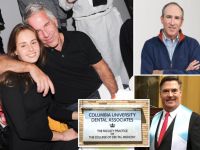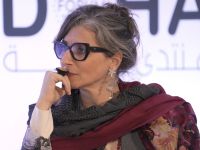The Syrian government and its opposition will hold their first face-to-face negotiations in the same room in Geneva on Saturday to try to resolve nearly three years of civil war after negotiations almost collapsed before they started.
“I met the delegations of the opposition and the government separately yesterday (Thursday) and again today (Friday) and tomorrow (Saturday) we expect, we have agreed, that we will meet in the same room,” U.N. mediator Lakhdar Brahimi told reporters.
National Coalition spokesman Louay Safi confirmed to Al Arabiya News Channel that the opposition’s delegation will hold direct talks with the government through the U.N. mediator on Saturday.
Safi said the negotiations will focus on forming a transitional authority with comprehensive powers.
He urged the government start releasing prisoners, beginning with women and children.
Pulled together by the United Nations, Russia and the United States, delegations from President Bashar al-Assad’s regime and the opposition had been due to sit down early Friday at U.N. headquarters in Geneva for their first face-to-face talks.
But Brahimi was unable to convince them to sit together, after the opposition insisted the regime must be prepared to discuss Assad leaving power.
“We knew that it was going to be difficult, complicated,” Brahimi said. “We never expected this to be easy -- I think the two parties understand what is at stake.”
The regime has threatened to withdraw from the talks should “serious sessions” fail to take place on Saturday, but Brahimi appeared confident no one would be immediately walking away from the talks.
“Both parties are going to be here tomorrow and they will be meeting. Nobody will be leaving on Saturday and nobody will be leaving on Sunday,” he said, stressing that the sides had “absolutely” agreed to talk face-to-face.
“We hope that it will be a good beginning and that we will continue until the end of next week,” he said, adding that at some point the parties would likely take a break from the discussions for a few days before continuing.
Brahimi said the talks so far had been “encouraging” but said negotiations on concrete issues had not yet begun.
“We have not discussed the core matters yet. We hope that both parties will give concessions that will be to the benefit of the process,” he said.
He said both sides had agreed that the negotiations would be based on an agreement reached at the “Geneva I” peace conference in 2012, but acknowledged that there were “some differences on the interpretation of some of its items” of the document.
“Among the many things we hope to be able to achieve is to clarify the ambiguity on those points,” he said.
The Geneva I agreement calls for the creation of a “transitional governing body,” but it does not specifically spell out Assad’s future role or lack thereof.
The opposition arrived in Switzerland with a sole aim -- toppling Assad -- while the regime says any talk of removing the Syrian leader is a “red line” it will not cross.
The regime has also stressed the Geneva communique’s call to “end to the violence” in Syria, maintaining that the accord’s main focus is reining in “terrorism”, something it accuses the opposition and its international backers of promoting.
Small steps
Brahimi has indicated that his aim is to start by seeking practical steps, like local ceasefires, prisoner releases and
access for international aid deliveries, before embarking on the tougher political negotiations. But even those narrow aims would
fail if the delegations go home.
Syria’s civil war has already killed at least 130,000 people, driven up to a third of the country’s 22 million people from their homes and made half dependent on aid, including hundreds of thousands cut off by fighting.
Among the hurdles to progress, the Islamist militants who control most rebel-held territory are boycotting the talks and
say anyone attending negotiations that fail to bring down Assad would be traitors.
Assad’s main regional backer, Iran, is also not represented at the Geneva talks. U.N. Secretary-General Ban Ki-moon invited
Tehran at the last minute, but then withdrew the invitation 24 hours later when it refused to endorse the Geneva 1 protocol.
During Wednesday’s opening ceremony, the government delegation drew a rebuke from Ban for using inflammatory
language after referring in a speech to rebels raping dead women, ripping fetuses from the womb and eating human organs.







